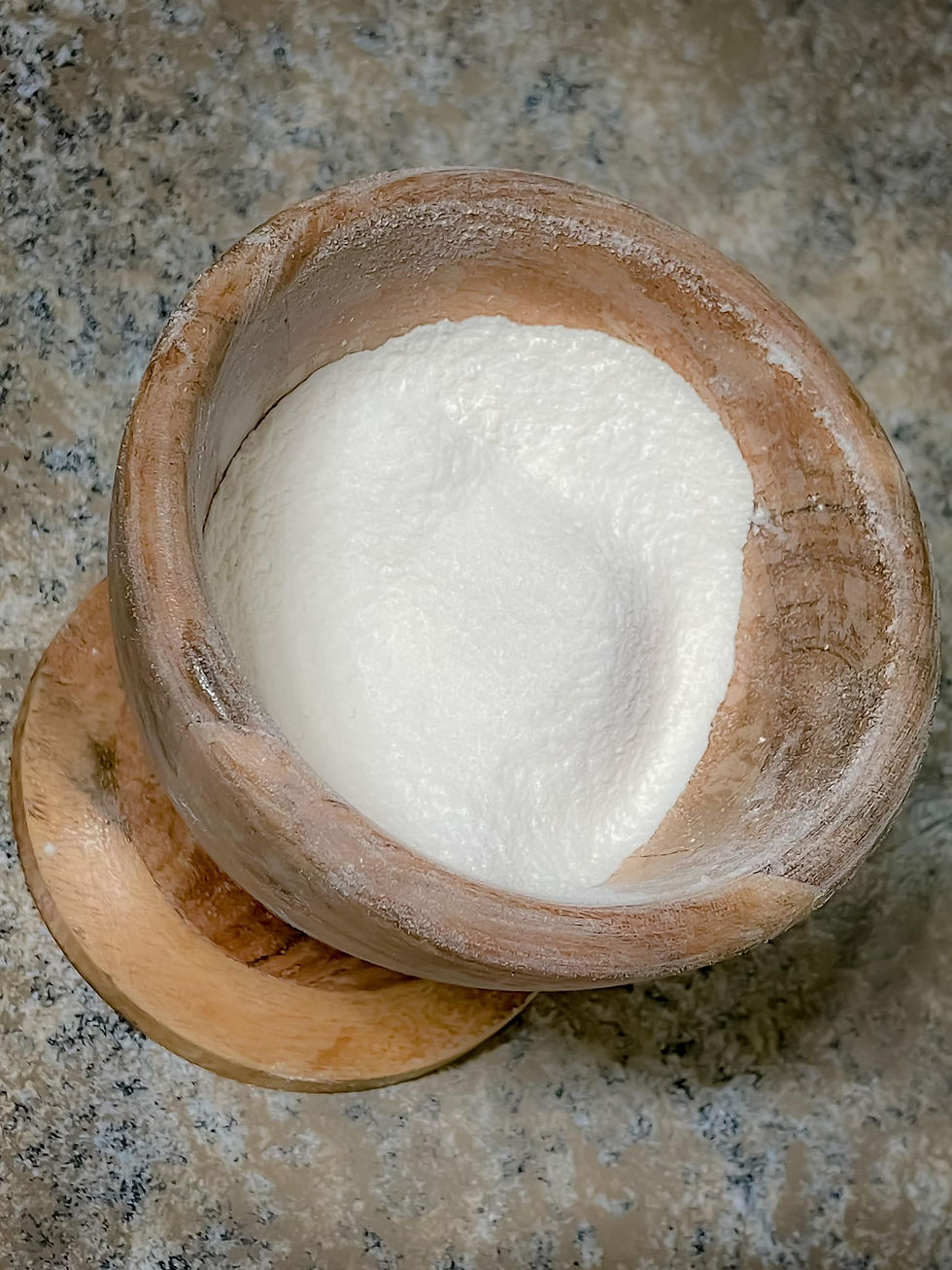Yeshua in Leviticus Part 2
- mliscross

- Nov 28, 2022
- 4 min read

In this post, we will start looking at the elements pertaining the grain offerings, and how Messiah is represented through them. Bread is a key element throughout the Word, both in the foreshadowing of Yeshua in the Old Testament and represented by His life in the New Testament. Yeshua was born in Beit-Lechem, Bethlehem, which means “house of bread”. Bread was a symbol of life, of nourishment. In Matthew 4:4 Yeshua said, “Man does not live on bread alone, but on every word the comes from the mouth of Adonai”, showing where bread gives the body life, the Word brings life to the spirit. In John 6:35 and 6:48, Yeshua said the He is the bread of life, and at the Passover seder before His crucifixion, He held up the matza, the bread, blessed it and declared, “this is My body.” In being able to see the importance of bread throughout scripture, it helps us be able to see the grain offerings in Leviticus chapter two were not a secondary or lesser offering that the animal offerings and sacrifices, rather they were a foreshadowing of the Messiah as well.
The elements of the grain offerings in Leviticus chapter 2 that we are going to look at include:
· Fine flour
· Olive oil
· Frankincense
· Unleavened cakes
· Matzah
· Broken in pieces
· No leaven
· No honey
· First fruits
· Seasoned with salt (salt of the covenant)
Fine Flour
As I began researching and studying about fine flour in relation to ancient Israel, I discovered there were two types of flour: solet and kemach. Kemach was a less precious and coarser flour where solet was a purer flour that was sifted time and time again to rid it of all subpar materials. Looking up solet in the Brown Driver Briggs Lexicon, there were three things mentioned about this flour. It was used in the king’s household, it was for honored guests, and it was luxurious food. JewishEncyclopedia.com reads it was referred to as, “the fat of the wheat” and was worth twice as much as barley. Therefore, it was solet, the purer flour, not the kemach or ordinary flour that was to be used in the grain offerings. Further reading suggests that it was the women who would grind this flour and prepare it for use. In a blog about fine flours from timesofisrael.com, Rabbi Pappenheim said, “Solet was considered so valuable that it was not dumped into a sac or bag like less precious kemach but stored in a dignified sal or basket.” He goes on to explain that the word solet “Invokes the repeated pressing, grinding and crushing necessary to produce high-quality flour.”
We hear the words “pure and spotless” in context of Messiah as the Lamb, but we can see in the grain offering the representation as well with the solet, the pure flour. The grinding and sifting of the grain was not a gentle process, and when we visualize the grains being crushed between rocks and forced through a sieve, it makes His words to Simon Peter about how the enemy wants to destroy our lives much clearer. “Simon, Simon! Indeed, satan has demanded to sift you all like wheat. But I have prayed for you, Simon that your faith will not fail. And when you have turned back, strengthen your brothers.” Luke 22:31-32 We can also see the crushing and grinding of the grain in context to Messiah himself in Isaiah 53:5 where it reads He was “crushed because of our iniquities.”
As I thought about the fact that it was usually the women who prepared the flour, I couldn’t help but recall something from the New Testament. In the book of Luke, we read that Yeshua, the King of Kings, was an honored guest at the home of a pharisee. Remember, solet was flour used in the king’s household and for honored guests. A sinful woman stood behind Him weeping until her tears wet His feet. She then wiped them with her hair and poured the perfume from the alabaster box she was holding upon them. In the book of John, we read a similar account in which Mary, the sister of Martha poured an entire pint of spikenard, an extremely expensive oil upon His feet and then wiped them with her hair. In the second reference, He made a very striking statement. “Leave her alone! She kept this for the day of my burial.” John 12:7 As it was the women who prepared the flour for the offering, it was women who prepared Yeshua, the solet, with these acts of worship.
Solet is made up of the letters Samek, Lamed, and Tav. In looking at some of the meanings behind each letter we see that Samek holds a meaning of God supporting the entire world, Lamed has a meaning of purpose and authority, and Tav means redemption, to seal, or covenant. The very letters that spell “fine flour” speak of that covenant of redemption for mankind. The Bread of Life, born in Beit-Lechem, (Bethlehem) which means “House of Bread” was offered up for us. As it is written, “Man cannot live by bread alone, but by every Word that proceeds from the mouth of God.” Let us feast on this bread and never go hungry, because only He can truly satisfy.




Comments